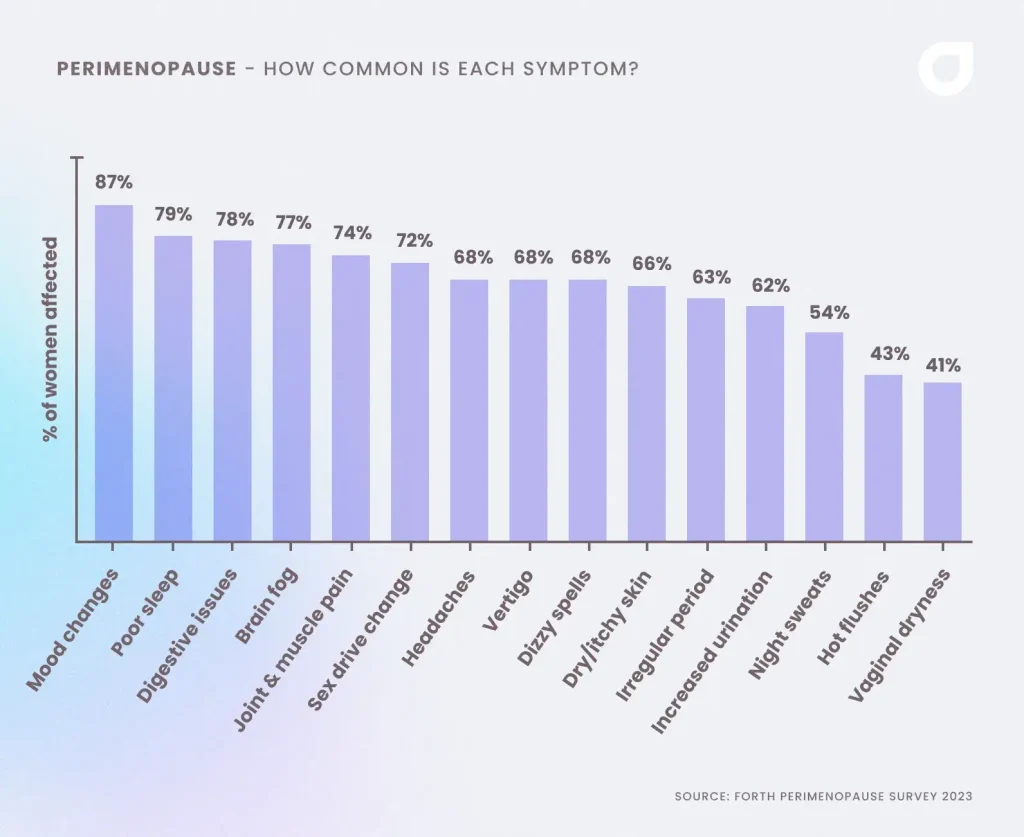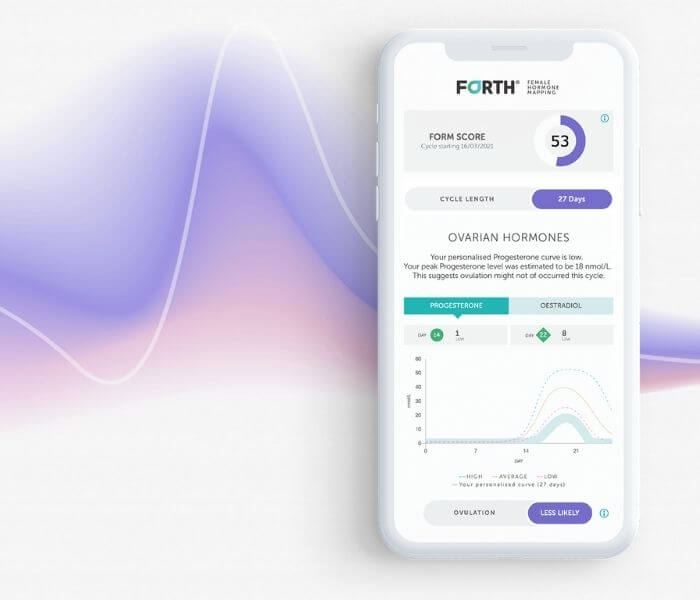5 mins read
How to support your partner through perimenopause

Often when we talk about menopause, we are talking directly to the women going through it. We focus on the symptoms they are experiencing, and the hormone shifts they are going through. We will often touch on the wider impacts, so on how things are at home, in their wider families and at work.
Whilst that, quite rightly, is a huge part of the conversation, there is also a wider viewpoint. One which focuses on how you, as a partner or family member of someone going through menopause can support them.
You may have noticed some changes over the past few months or years but not known why. Perhaps you weren’t sure how to start a conversation or were a little bit nervous to ask? Maybe you were even worried about what they might say – that you would be opening a can of worms, or getting into an argument you didn’t really want or need to have.
Yet, you want to love and support them and show them that you care – don’t worry, I have you covered!
Menopause is a tricky beast
Whilst every woman will experience the changing hormones and end of their menstrual periods, some will have hardly any symptoms, whilst others will really struggle.
Our different experiences are down to the way in which the changing hormones interact with the oestrogen receptors all over our bodies, along with things like our reproductive history, our thoughts about no longer being a woman of reproductive ability and our social support network, our diet, and our lifestyle.
What are the signs?
We often don’t notice the changes until much later in the menopause transition, or we may just feel not quite ourselves but can’t put our finger on why. The beginning of menopause can look different for each of us, but if you spot any of the following signs, it could be menopause:
- She is hot and bothered, opening windows and fanning herself.
- She is quieter than usual or more withdrawn.
- She is moody or up and down.
- She is less interested in life/going out/doing things.
- She is less interested in sex and intimacy.
- She is less able to remember things.
- She is less able to concentrate.
- She is more anxious.
- She always second-guesses herself and over-thinks things.
- She is more bothered about her appearance.
- She is looking at ‘what’s next’ in life.
- She is worried about her periods.
- She is more focused on her wrinkles, or lines on her face or body.
- She is more stressed about the little things.

This is more than being a bit stressed and needing to have a few days off or a holiday. It is hormonally and biologically driven and can impact for many years, across many different areas of life. Indeed, menopause symptoms can start 8-10 years before her last period. She may also be feeling ‘old’, ‘less confident’, ‘less youthful’, ‘less beautiful or attractive’ and ‘less of a woman’ than before.
YOU may be left feeling ‘where did my beautiful partner go?’
Does she not want to be with me anymore, does she not find me attractive? Why is she being like this when nothing has changed? How can I help her to see what I see? How can I support her through this?
Supporting your partner
If you think your partner may be struggling with menopause, try to be as supportive as you can and talk to her. Not mid-argument, when she is in a rage or stressed making the tea. Not by making a funny comment or by throwing in a ’I think it could it be your hormones love’ or ‘have you checked if it’s menopause’ – but by approaching her in a sensitive, calm way.
Ask her how she is doing, perhaps mention she hasn’t seemed herself recently and you just want to check all is ok.
Let her know you are there if she wants to talk, and that you love her whatever and that to you, she is still the person you love and cherish.
If you’re not someone who likes to talk about emotional issues, perhaps offer her a cuddle when you get in from work or whilst watching TV. Find ways to let her know you care, to bring the intimacy back, without the pressure of it escalating and ending up in sex.
You may also want to think about how she experiences and demonstrates her love, (her love language), and let her know in ways she appreciates and understands.
It’s not about you
Remember that how she is feeling is likely nothing to do with you.
I know it can sometimes feel like it is, especially if she snaps at you, pushes away your attempts at closeness or if you haven’t had sex or felt close in what feels like forever.
It may be that she just doesn’t feel sexy right now, her body is changing, maybe she has dryness and is worried sex will hurt or that if you have sex, she will get another uncomfortable urinary tract infection.
41% of women experience vaginal dryness during perimenopause[1].

Maybe she is worried she won’t get aroused and that will upset you both. Maybe she wants to cuddle before she drifts off to sleep but the cuddle will get her hot and cause a flush and it will take her another 30 minutes to cool down and she just wants to sleep.
43% of women experience hot flushes and 54% experience night sweats[1].
Maybe she wants to talk to you, but fears you will no longer see her as a whole woman, now she is menopausal. Maybe she doesn’t understand why she feels so confused or angry all the time, maybe she is actually starting to dislike the person she is becoming and so pushes you away because she doesn’t think you should like her either.
Whatever the reason, showing her that you love and support her is a great place to start the conversation.
- Health scores calculated
Close
Article references
This information has been medically written by Dr Beverley Taylor
Bev has been a Chartered Psychologist for over 10 years, obtaining a Doctorate in Health Psychology in 2010. She has worked as an academic researcher and research consultant before focusing on how she can support those with menopause via lifestyle, education, and one-to-one support. Bev regularly writes about psychology, menopause, and behavioural change and has attended numerous events as both a speaker and a panellist.

Dr Beverley Taylor
Menopause Expert
Related articles
Like this article? Here are some more based on similar topics.




